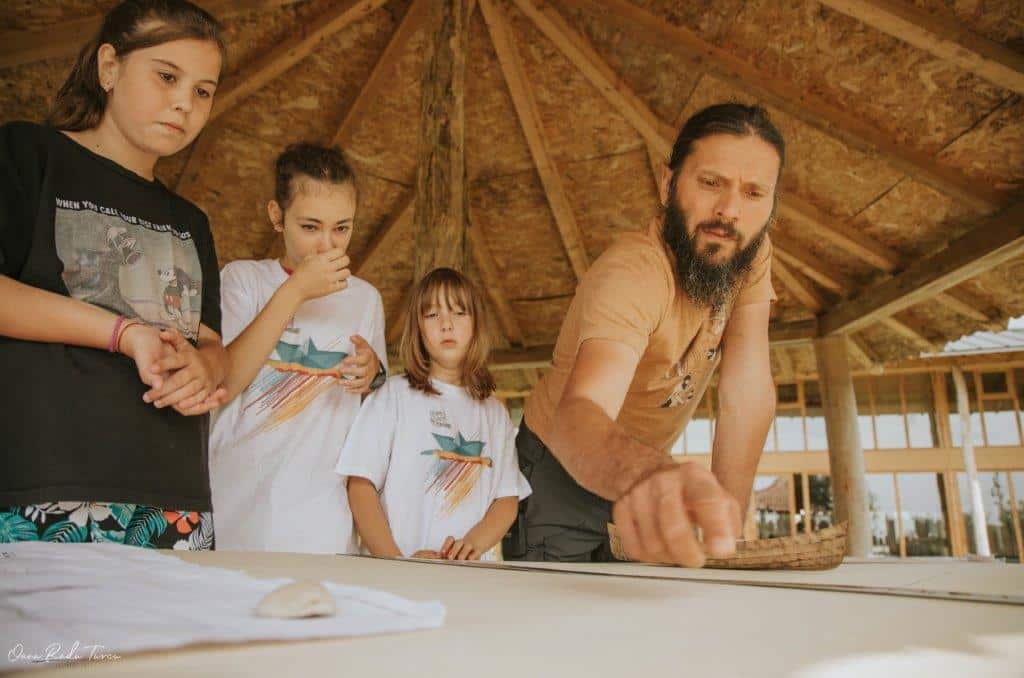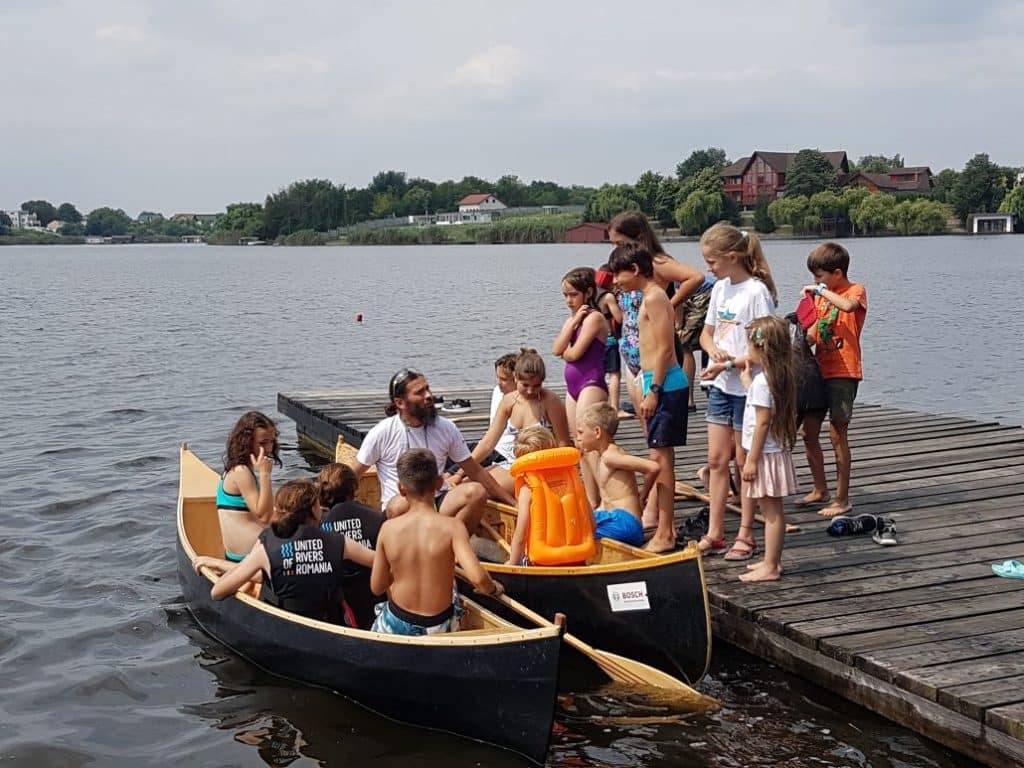Canotca-school workshop
The educational wooden boat construction workshop joined, in 2019, the United Rivers of Romania campaign of the Ivan Patzaichin - Mila 23 Association.
We planned to teach children the value of natural and cultural heritage, why they must be protected, and how they can capitalize on them for the sustainable development of communities, for the present and the future, becoming responsible, resourceful citizens, caring towards their well-being, that of those around them and of the Planet. And to make them aware of the urgency of meeting the goals for sustainable development and how each of us can contribute with the skills and tools at our disposal.
The traditional boat construction workshop is designed by craftsman Viorel Gheorghe as a non-formal, experiential education method, through which children from Romanian villages and cities located near the waters become, for three weeks, real craftsmen, shaping the wood, finding out the basic rules of photography, applying notions of geometry, physics, economics, and ecology, etc., while practicing critical thinking and active civic spirit.
At the end of the workshop, the participants test the tangible result of their work with a ride on the water in the boat they built with their own hands. They come into direct contact with nature and, both them and the rest of the community, rediscover natural areas with potential in the locality, thus contributing to strengthening the local brand and diversifying the palette of leisure activities.
Through access to children’s activities, the local community is engaged in an exercise of discovering, valuing, and protecting the waters that cross the city, of valorizing the riverside urban landscape.

The workshop took place, during 2018-2022, in the Romanian localities: Drobeta Turnu Severin, Eșelnița, Sfântu Gheorghe, Sulina, Piscu, Chilia Veche, Comana, Mila 23. In 2023, we go further.

Through the practical workshop on wooden boat construction, children from the local communities learned why heritage is important and valuable, including from the perspective of climate change, how people can reconnect with the resources of the areas they live in, how to develop sustainably and with care for the environment, why some archaic practices make sense to the contemporary, what kind of occupations and skills might be useful in the future and why people are interesting in their cultural and multi-ethnic diversity.
We started from the heart of the Danube Delta and generated a pilot project that included (for now) 8 localities in Romania, thus we discovered the potential to scale this project even more, at the regional and European levels.
We have developed a network of children and defined a methodology of learning through experience, which we want to consolidate and extend to other examples of intangible heritage in need of recovery and valorization, through which we can prepare and connect kids to the process of sustainable development based on local resources and experiential tourism, in which being good connoisseurs of local heritage is an significant asset.
The participants at the Piscu workshop are the protagonists of an educational video series. They were accompanied by teachers of mathematics, physics, geography, social education, and specialists in sustainable development, art, and computer-aided design. From the practical lessons at the workshop, we created an interdisciplinary teaching material, a series of open educational resources, available to students, teachers, and education specialists from all over the country.